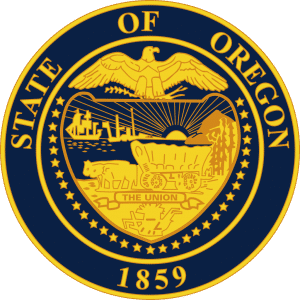
Oregon Casino and Gambling Guide
If you’ve ever had questions about casino operations in the Beaver State - here’s a comprehensive guide for more information.
Oregon State Guide
To begin, let's have a look at the forms of gambling that are permissible within the state:
✅ Social and Sweepstake Casinos
✅ Online Sports Betting
✅ Land-based Casino & Sports Betting
❌ Online Casino
Oregon residents who have a thing for casino games can enjoy legal forms of gambling such as online social casinos, land-based casinos, lottery, charitable gaming, and even social gambling.
Continue reading for a comprehensive guide to each product, along with our recommended betting operators.
Top Casinos
FAQ
-
Are there casinos in Oregon?
-
Is gambling in Oregon legal?
-
Is sports betting legal in Oregon?
-
Are online casinos legal in Oregon?
-
What is a social casino?
-
Are social casinos legal in Oregon?
-
What types of games are available in social casinos in Oregon?
-
Is it safe to use sweepstakes casinos in Oregon?
Social Casinos in Oregon
In Oregon, the popularity of social casinos has been on the rise, offering residents a unique and engaging gaming experience without the need for real-money transactions. These casinos provide a legal and risk-free alternative for players to enjoy a variety of casino games, including slots, table games, and more.
With the state's restrictive stance on certain forms of online gambling, social casinos have become a favored choice, allowing users to play for fun, interact with friends, and participate in sweepstakes for a chance to win prizes. As the landscape of online gaming evolves, social casinos continue to thrive, offering Oregonians an entertaining way to experience casino-style gameplay within the bounds of state regulations.
Here's a summary of the leading social casinos accessible in Oregon:
Pulsz Casino Oregon
Pulsz Casino, available in Oregon, is a rapidly expanding social gaming site, gaining popularity not only in the United States but also internationally. Boasting an extensive collection of Vegas-style slots and beloved casino games, coupled with a user-friendly mobile app and an impressive player rewards program, the reasons for its rapid growth are evident.
- Real cash prizes & Digital gift cards.
- 700+ Vegas Casino-Style Games from top providers.
- Excellent mobile app.
High 5 Casino Oregon
High 5 Games, a leading independent provider of casino games, is the company behind High 5 Casino. This social casino delivers a Vegas-style experience and is the ultimate free-to-play destination for casino enthusiasts in Oregon. High 5 Casino provides a diverse selection of slots, table games, live dealer options, and various other casino game categories, with new gaming options unveiled weekly.
- Generous welcome bonus.
- An impressive array of live dealer options.
- Opportunity to secure real cash prizes.
Fortune Coins Casino Oregon
Fortune Coins Casino is owned and operated by Blazesoft Ltd. in partnership with Let Us Entertain You Inc and is available for users in Oregon. This social casino brings the exhilarating ambiance of the casino floor directly to the homes of players. As one of the world's premier social casinos, Fortune Coins, while not providing actual gambling opportunities, presents a wealth of exciting features and benefits for players.
- Exceptional chances for bonus rewards.
- A fantastic variety of online slots to choose from.
- User-friendly website and app.
McLuck Casino Oregon
Boasting a diverse collection of Vegas-style slots from leading providers such as Pragmatic Play and NetEnt, McLuck Casino extends a generous welcome offer to new players in Oregon. With secure banking options and a dedicated customer support team, McLuck Casino presents numerous compelling reasons for consideration.
- A vast selection of Vegas-style slots from top providers
- Huge Jackpots
- Real cash prizes offered
- Exclusive Jackpots
- Loyalty Club
- Hundreds of Games
2.5 FREE Sweepstakes Coins
WOW Vegas Casino Oregon
WOW Vegas Casino delivers a thrilling online casino experience to players in Oregon. Utilizing cutting-edge gaming technology and maintaining top-tier data encryption, the WOW Vegas ensures a secure environment for its users. Moreover, users can earn real money prizes through a blend of strategic gameplay, dedication, and a touch of luck within the WOW Vegas community.
- Regularly bestowed bonuses and rewards.
- A superb array of online slots.
- A top-tier customer loyalty program.
- Over 750 Casino Games
- Daily Log-In Bonuses
- Stellar Website Design
8,500 Wow Coins & 4.5 Sweep Coins
Chumba Casino Oregon
Chumba Casino, by Virtual Gaming Worlds, extends a complete online casino experience to Oregon players. Labeled as "America's #1 Social Casino Experience," Chumba combines social and sweepstakes gaming. Players gain free access to a diverse selection of over a hundred slots and casino-style games, coupled with the chance to win real cash prizes through their gameplay.
- Over 100 slots, featuring high-quality graphics and immersive sound effects.
- Generous welcome bonus.
- Opportunity to win real cash prizes and digital gift cards.
- Legal in almost all states
- Easy and User-Friendly Interface
- Smooth Registration Process
2,000,000 FREE Gold Coins and 2 FREE Sweeps Coins
Luckyland Slots Oregon
LuckyLand Slots, available in Oregon, is one of the world's leading social casinos. Owned and operated by Virtual Gaming Worlds, LuckyLand shares its parent company with other notable social gaming sites like Chumba Casino and Global Poker. LuckyLand Casino offers users access to a diverse array of Vegas-style casino games with a chance to win real cash prizes through its sweepstakes model.
- Exciting hourly bonus opportunities.
- Broad selection of slots.
- Easy sign-up process.
- Great Bonus Welcome Package
- Generous Loyalty Program
- Smooth payment transactions
FREE 7,777 Gold Coins & 10 FREE Sweeps Coins
Stake.us Casino Oregon
Stake.us, a prominent social casino, is accessible in Oregon and throughout the United States. Owned and operated by Sweepstakes Limited, it's essential to note that Stake.us should not be confused with Stake.com, a European cryptocurrency casino, and sportsbook. Stake.us offers a top-class social, secure, and free gaming experience. With a vast selection exceeding 450 slots, table games, and live dealer options, players can indulge in a diverse array of games crafted by industry-leading software providers.
- A collection of more than 20 exclusive Stake Original games.
- Opportunity to win cryptocurrency, gift cards, and merchandise.
- An impressive slots selection.
Hard Rock Social Casino Oregon
Hard Rock Social Casino, also known as Hard Rock Jackpot Casino, has swiftly gained popularity in Oregon and across the United States. While Hard Rock does not provide real cash rewards, it incentivizes players with exciting prizes, such as tickets to concerts and sporting events, along with discounts at the Hard Rock Online Rock Shop.
- Opportunity to earn Rock Shop discounts and real-world prizes.
- Timed bonus every three hours.
- Numerous opportunities to earn free coins and hearts.
MyJackPot.com Oregon
MyJackpot.com, owned and operated by Whow Games, is all open to Oregon users. As a social casino, MyJackpot.com mirrors the qualities and features found in real-money online casinos, offering a diverse selection of slots, enticing bonus opportunities, premium software, and thrilling gameplay.
- Features a top-tier loyalty program.
- Accepts Cryptocurrencies.
- Exciting bonus opportunities.
Online Casinos in Oregon
Online casino gambling, excluding social casinos, remains prohibited in Oregon. Exclusive authorization for casino gambling is granted solely to Native American tribes, resulting in the operation of nine casinos on tribal lands within the state.
History of Gambling Laws and Casinos in Oregon
In the 1970s, Oregon saw the recognition of charitable and social gaming. "Casino nights" for fundraising, featuring games like craps and blackjack, debuted in 1971.
The Oregon State Lottery started operations in 1985. Voters expressly prohibited commercial casinos in the same election, but video lottery terminals were authorized in 1989, followed by video poker machines in 1992. Tribal-state compacts, exclusive for Class II and III gaming, were formed in the '90s.
Oregon's gambling laws have seen minimal change in the 21st century. Attempts to legalize commercial casinos have been consistently rejected by residents, such as Measures 75, 82, and 83 in 2010 and 2012. Despite resistance, the state lottery progressed, with a failed attempt to legalize poker in 2013.
Governor John Kitzhaber authorized VLTs in Portland Meadows in June 2013. In July 2016, IGT secured a deal to provide 1,500 VLTs. A notable advancement was the launch of a mobile lottery app in October 2018, allowing locals to check winning numbers conveniently from their mobile devices.
Online Sports Betting in Oregon
The Oregon state's foray into legal sports betting started with Sports Action in 1989 and lasted until 2007. A more recent legalization of online sports wagering occurred in October 2019 with the introduction of the Scoreboard sportsbook by the Oregon Lottery, facilitating online sports betting.
In January 2022, DraftKings Sportsbook assumed control of sports betting in the state, transitioning customers to its app. As of now, DraftKings online sportsbook is the exclusive legal sportsbook app in Oregon, providing residents with access to the familiar DraftKings app experience seen in other states. However, it's noteworthy that the app excludes college betting in Oregon.
Land-based Casinos in Oregon
Oregon boasts a selection of land-based casinos that offer a diverse and entertaining gaming experience. These establishments provide a variety of games and amenities, creating a vibrant atmosphere for both casual players and avid gamblers.
Here are some notable land-based casinos in Oregon:
| Casino | City | Number of slots | Sportsbook |
| Spirit Mountain Casino | Grand Ronde | 2000+ | No |
| Chinook Winds Casino Resort | Lincoln City | 200+ | No |
| Three Rivers Casino Resort | Florence | 700+ | Yes |
| Kla-Mo-Ya Casino | Chiloquin | 300+ | No |
| Wildhorse Resort & Casino | Pendleton | 1200+ | No |
| The Mill Casino | North Bend | 700+ | No |
| Seven Feathers Casino Resort | Canyonville | 900+ | No |
Other Forms of Legal Gambling and Casinos in Oregon
Besides social casinos and land-based casinos, the legal casino gaming landscape in Oregon includes:
Lottery Games:
- Oregon State Lottery holds a monopoly on all lottery products.
- Video lottery terminals are permitted at racetracks, retail establishments, bars, restaurants, and taverns.
- Age limit: Participants must be over 18.
Tribal Casino Gaming:
- 10 tribal gambling facilities offer various casino games, including slots, video poker, roulette, craps, blackjack, and poker.
- Operated under state-tribe compacts allowing Class II and III games.
Non-Profit Gambling:
- Legal raffles, bingo, Texas Hold ‘Em, and Monte Carlo events for non-profit fundraising.
- Age restriction: Participants must be 18.
Interactive Gambling:
- Oregon Lottery launched its app in 2019 for ticket verification.
- Oregon Lottery is the sole mobile and online provider.
- Offshore operators are currently not permitted in the market, but some online gaming operators accept players from the state.
Social Gambling:
- Allowed in private clubs and approved businesses.
- Residents can enjoy various casino games without the house taking a cut.
Online Poker
- Online poker activities is deemed illegal gambling according to Oregon state law.
- The majority of online gambling forms lack legal regulation. Despite the absence of a structured online gambling framework, several offshore poker rooms welcome customers from Oregon.








